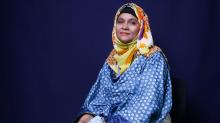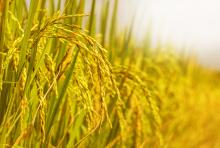Bangladesh
News
27 Oct 2021
Giants in History: Maqsudul Alam (14 December 1954 – 20 December 2014) was a biologist from Bangladesh who is renowned for his research on genome sequencing.
25 Nov 2019
Abdus Suttar Khan (c. 1941 – 31 January 2008) was a Bangladeshi engineer who spent a significant part of his career conducting aerospace research with NASA, United Technology and Alstom.

21 May 2007
John Richards, IUBAT overseas faculty member, led a roundtable on the problems of school quality in Bangladesh. The roundtable was organized to release the latest monograph of the IUBAT Centre for Policy Research. The monograph title is “What Parents Think of their Children’s Schools”.

13 Mar 2007
The study explores CSR conception and implications in context of Bangladesh and illustrates practices in specific industry sector in particular. In keeping with global movement, CSR is being seen as the source of new competitive edge for the companies operating in Bangladesh.

02 Feb 2007
Some untoward incident like boycott from the importer has taught the local business community about the immense importance of CSR and adoption of this modern and competitive practice is gradually increasing in Bangladesh.

07 Nov 2006
IUBAT practices a seed-model of KBAD providing repayable loans to students enabling them to break out of poverty trap which if extended in wider scale in any society, could lead to community self reliance.

26 Jul 2006
In an attempt to understand the potential cause of rickets in Bangladesh, SARPV conducted a study of 70 households. The results show that diet, food preparation, sunlight exposure and breastfeeding are all major possibilities

18 Jul 2006
Widespread malnutrition is prevalent among all FSVGD women and their children aged less than 5 years. A higher prevalence of malnutrition in 12-23-month age-group is probably attributable to inadequate feeding practice from birth, and the poorer nutritional status of female children might be due to gender discrimination in that community.

07 Feb 2006
The Tragedy of the Tsunami of 26th December 2004; Health and Nutrition Status of Earthquake-affected Population in Pakistan

07 Feb 2006
HIV in Bangladesh-Current Scenario; Nutrition and HIV: Science vs Hyperbole- Where Is the Intersection?; Management of Severe Malnutrition in HIV-infected Children: Recent Review of Current Evidence; Nutrition and HIV Programming Framework-Evidence and Policy Implications

07 Feb 2006
Obesity in Childhood; Vaccines for the Prevention of Diarrhoea; Data for Decision-making; Environment and Health; Malnutrition and Response to Feeding; Infant and Young Child Feeding; Child Health; Severe Malnutrition in the Community; Optimizing Management of Diarrhoea and Anaemia; Combating Micronutrient Malnutrition; HIV Infection and Nutrition;

07 Feb 2006
DIARRHOEAL DISEASES III; MICRONUTRIENTS, VITAMINS, AND DIETARY INTAKE III; BREASTFEEDING AND INFANT HEALTH III; NUTRITIONAL PROBLEMS, GROWTH, AND DEVELOPMENT III; HEALTH POLICY AND OTHER CHILDHOOD PROBLEMS III

06 Feb 2006
While the RRV-TV vaccine was safe and inmmunogenic within Bangladesh setting, its withdrawal by U.S. has impacted negatively the possible use of the vaccine in developing countries. Currently, only the HRV vaccine (RIX4414) is studied for safety and immunogenicity.

06 Feb 2006
Rotavirus is a leading cause of severe diarrhoea in infants. Currently, no specific therapy is available, although oral rehydration solution (ORS) has substantially reduced mortality from dehydration. Therefore, the development of cheap anti-viral products for the prevention or treatment of the disease is urgently needed.

06 Feb 2006
Based on screening data, 140 children from Avon would be expected to have coeliac disease. However, only 12 of these children have been diagnosed with coeliac disease. This suggests that 90% of children with possible coeliac disease may be being missed.

06 Feb 2006
DIARRHOEAL DISEASES II; MICRONUTRIENTS, VITAMINS, AND DIETARY INTAKE II; BREASTFEEDING AND INFANT HEALTH II; NUTRITIONAL PROBLEMS, GROWTH, AND DEVELOPMENT II; HEALTH POLICY AND OTHER CHILDHOOD PROBLEMS II

06 Feb 2006
Rotavirus Vaccine; Newborn Care; Coeliac Disease in Children; Obesity in the Developing World; Insights into Diarrhoea; Liver Diseases in Children; Liver Transplantation in the Developing World; Hepatitis C in Children; Inflammatory Bowel Disease in Asians; Community-based Care; Parasites, Diarrhoea, and Atopy; Health Systems for Better Childcare

05 Feb 2006
Maternal under-nutrition and low birth-weight are highly prevalent in developing countries. Many countries have nutritional supplementation programmes during pregnancy to improve the situation. However, the impact of prenatal supplementations on infants’ developmental outcome has not been adequately studied.

05 Feb 2006
Breastfeeding practices have wide sociocultural connections and vary according to geographic regions. Published literature on breastfeeding initiation and exclusive breastfeeding is not available for urban population of western Nepal.

05 Feb 2006
An estimated 42,000 children are blind in Bangladesh, and 32% of them are blind from preventable causes, such as vitamin A deficiency mostly following diarrhoea and measles.

05 Feb 2006
Simple behavioural change interventions may reduce early hospital deaths among children admitted with severe malnutrition but do not reduce case fatality.

05 Feb 2006
Endoscopic nodular antritis in children is described to have a high correlation with Helicobater pylori infection.
The study was carried out to investigate the accuracy of using antral nodularity as a marker for H. pylori infection in children.

05 Feb 2006
Increasing antibiotic resistance has emerged as a major challenge in the treatment of shigellosis as multi-drug-resistant Shigellae are being increasingly reported. 47% of patients either did not respond or responded partially to fluoroquinolones. Due to indiscriminate use they will soon be ineffective in the region for treating shigellosis.

05 Feb 2006
The study has shown that the home-made complementary feeding preparation with high energy density is more effective in improving the weight gain of infants than conventional weaning foods.

05 Feb 2006
Sessions include Diarrhoel diseases I; Micronutrients, Vitamins and Dietary Intake I; Breastfeeding and Infant Health I; Nutritional Problems, Growth, and Development I; Health Policy and Other Childhood Problems I;

05 Feb 2006
Micronutrients in child health; Child nutrition and growth; Management of diarrheal diseases; Advocacy and social equity; Helicobacter pylori infection in children; Facility-based management of severe malnutrition; Etiology of diarrheal diseases; Infant and young child feeding; Nutrition and child development and many more

05 Feb 2006
The study was carried out to demonstrate the potential to improve zinc nutrition of children through a series of improvements to agricultural production, rice varieties, processing and cooking of rice, and improvements to water sources.

05 Feb 2006
The study explored the magnitude of physical violence against pregnant women in Bangladesh and the factors associated with such violence.

11 Dec 2005
Why do power sector problems persist in Bangladesh? What can be done to solve them? This report assesses the barriers to accelerated electrification - in particular the barriers to rural electrification – and puts forward practical recommendations.
Events

02 Nov 2008
The most definitive antibody event in Europe will be coming to Asia in 2008. Asia Antibody Congress 2008 will bring together thought leaders from pharmaceutical, biotech & start-up companies, CRO/CMOs, consultants & regulatory authorities.

14 Apr 2008
BioMedical Asia 2008, taking place 14 - 17 April 2008 in Singapore, is the largest and most comprehensive biomedical event in Asia Pacific where top minds from every continent will convene.

08 Mar 2006
The Asian Conference on Diarrhoeal Diseases and Nutrition (ASCODD) is held regularly every two years in different locations throughout Asia. The next event is the 11th ASCODD, to be held in Bangkok, Thailand, 8-10 March 2006.

17 Nov 2005
The 3rd Asia Pacific Conference on Reproductive and Sexual Health (3rd APCRSH) will be held in Kuala Lumpur from 17 to 21 November 2005.

06 Feb 2006
The 2006 Commonwealth Congress on Diarrhoea and Malnutrition will be held at ICDDR,B: Centre for Health and Population Research, Dhaka, Bangladesh, 6-8 February 2006.
Researchers
Morshed Hossan Molla, Ph.D. Research Fellow in the Department of Geography and Environmental Studies, University of Chittagong and working at YPSA (Young Power in Social Action) as a Research, Monitoring & Evaluation Officer, Chittagong, Bangladesh. He received B.Sc. (Honours) and MS (thesis) Degrees in the Department of Geography and Environmental Studies, University of Chittagong in 2009 and 2011 respectively. He received also M.Phil degree from the same department in the field of Water Resource Management. He has attended a number of national and international conferences and published more than thirty research articles in national and international journals and books, mainly on urban service delivery (supply water), urban environment & environmental health, climate change & disaster management, and water resources management. He has a desire to contribute to different aspects of the planning process for underprivileged groups.
The knowledge and skills learned from The University of Sydney, Cornell University, CIMMTY, IRRI, TWAS, OWSD, running of international projects and presentation of research findings in multiple international congress/conferences – all helped not only to become the researcher today, but also motivated to become a research leader.
Dr. Hasibun Naher is a mathematician working on numerical models related to natural disasters including storm surges, tsunami simulation, earthquakes, and energy. She is also interested in issues related to women in STEM, active learning, sustainable mathematics education and sustainable development using mathematical modeling,
I am a socio-cultural anthropologist and faculty member at Jahangirnagar University, Bangladesh, pursuing my graduate research on Rohingya refugee policy at University of Wisconsin, Milwaukee, USA.
I completed B.Sc. (Honours) and M.Sc. in Marine Sciences from University of Chittagong, Bangladesh, M.Phil in Fishereis Technology from University of Calcutta, India and Ph.D. in Environmental Sciences from the Jahangirnagar University, Bangladesh.
I am working as a Program Manager of a Non-Government Organization YPSA (Young Power in Social Action), Bangladesh on Climate Change Adaptation related issues. I have 12 years of Professional experiences of working in a NGO for work on climate change issue, environmental management and human rights issues.
I have a keen interest in climate change, fisheries management, coastal pollutions and environmental assessment. I am author of 70 national and international publication based on climate change, aquatic biodiversity and environmental management issues that are available in Google Scholar and ResearchGate.
Research interest
climate change, fisheries management, aquatic biodiversity, environmental pollution monitoring
Dr. Mashura Shammi is an associate professor at the Department of Environmental Sciences, Jahangirnagar University, Bangladesh.
ICDDR,B: Centre for Health and Population Research
Prof. Mahmudur Rahman is an Infectious Disease Epidemiologist. He is enlisted in the IHR roster of Experts and included in the Emergency committees of MERS CoV, Ebola and Poliomyelitis. He is also the Current Chair and member in different committees of WHO.
Giants in history
Flora Zaibun Majid ( 1939–2018) was an accomplished Bangladeshi researcher in botany and nutrition science and the first female chairperson of the Bangladesh Council of Scientific and Industrial Research.
In his over 30 year career in rice research, Munshi Siddique Ahmad (1924 – 19 October 2011) developed more than 30 varieties of high-yielding rice, including the BRRI Shail strain, which was responsible for increasing the rice production of Bangladesh from 8 million tonnes in 1965 to 20 million tonnes in 1975.
Sir Jagadish Chandra Bose (30 November 1858 – 23 November 1937) was a scientist and inventor who contributed to a wide range of scientific fields such as physics, botany and biology.
Abdus Suttar Khan (c. 1941 – 31 January 2008) was a Bangladeshi engineer who spent a significant part of his career conducting aerospace research with NASA, United Technology and Alstom.
Maqsudul Alam (14 December 1954 – 20 December 2014) was a biologist from Bangladesh who is renowned for his research on genome sequencing
Fazlur Rahman Khan (3 April 1929 – 27 March 1982) was a Bangladeshi-American structural engineer and architect who invented the tube principle, which formed the basis for modern skyscraper design.

















